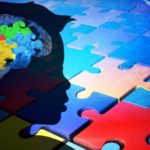A new study by the University of College London claims that people who fall ill by the SARS-CoV-2 infection may develop psychiatric-like symptoms during the course of the virus’s transmission, and possibly after recovery.
The findings, released online in the peer-reviewed journal The Lancet Psychiatry, detailed the short and long-term effects of patients who’ve contracted the 2002-2004 SARS infection, the Middle East respiratory syndrome (MERS), and the recent SARS-CoV-2 strain.
Their analysis of the recent coronavirus strain, which included 65 peer-reviewed studies and several pre-prints pending peer review, was only based on patients who received hospitalization and did not self-quarantine for mild symptoms.
Databases scoured by the British research group included Embase, PsycINFO, and MEDLINE.
In their findings, researchers determined that one in four people hospitalized with the coronavirus infection might present symptoms of delirium. PTSD, anxiety, and chronic fatigue may also be associated with the coronavirus infection after recovery, however, evidence was very minimal to establish certainty.
In many cases pertaining to SARS and MERS, the presence of delirium, PTSD and chronic fatigue is all-to-common.
“Most people with COVID-19 will not develop any mental health problems, even among those with severe cases requiring hospitalisation, but given the huge numbers of people getting sick, the global impact on mental health could be considerable,” Jonathan Rogers, co-author of the study, said in a statement.
“Our analysis focuses on potential mental health risks of being hospitalised with a coronavirus infection, and how psychiatric conditions could worsen the prognosis or hold people back from returning to their normal lives after recovering,” Rogers concluded.


